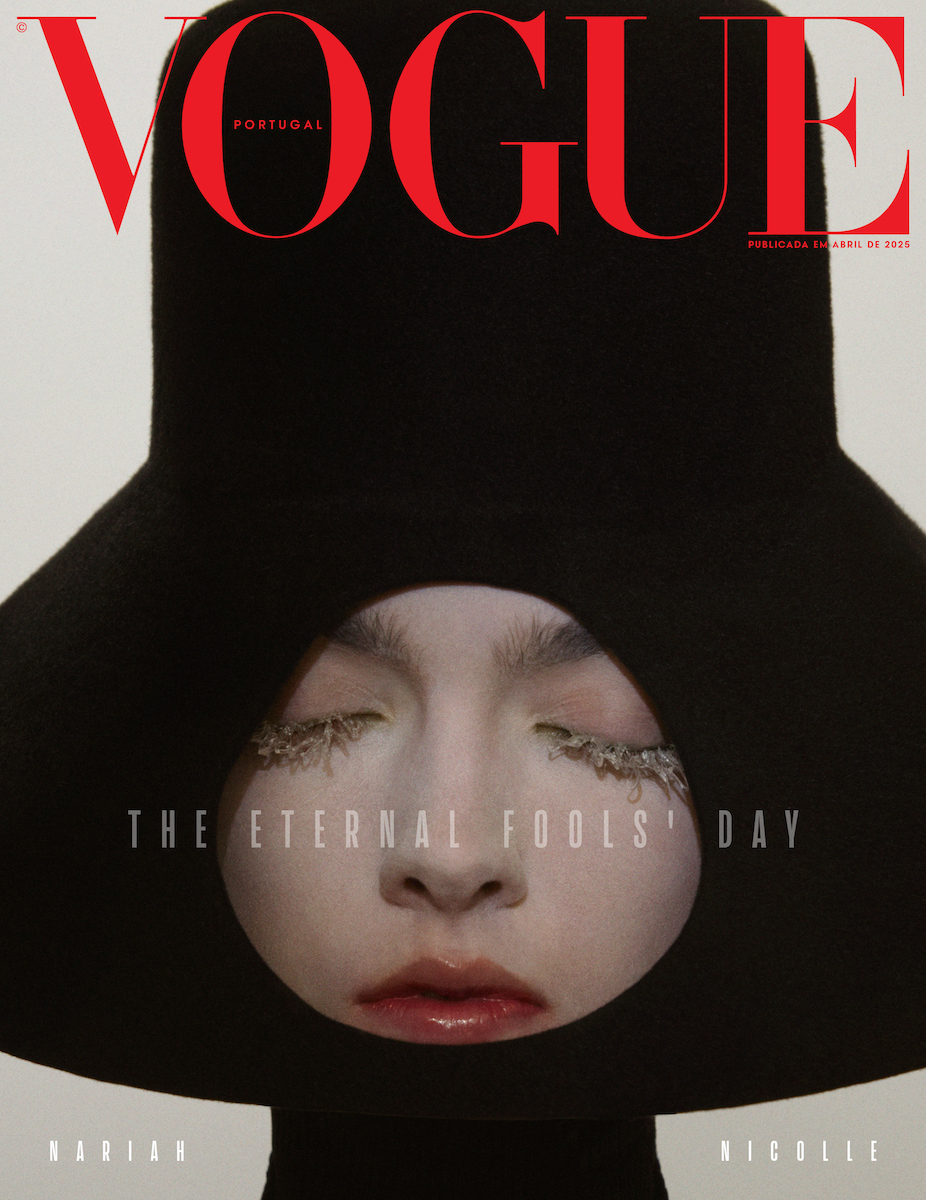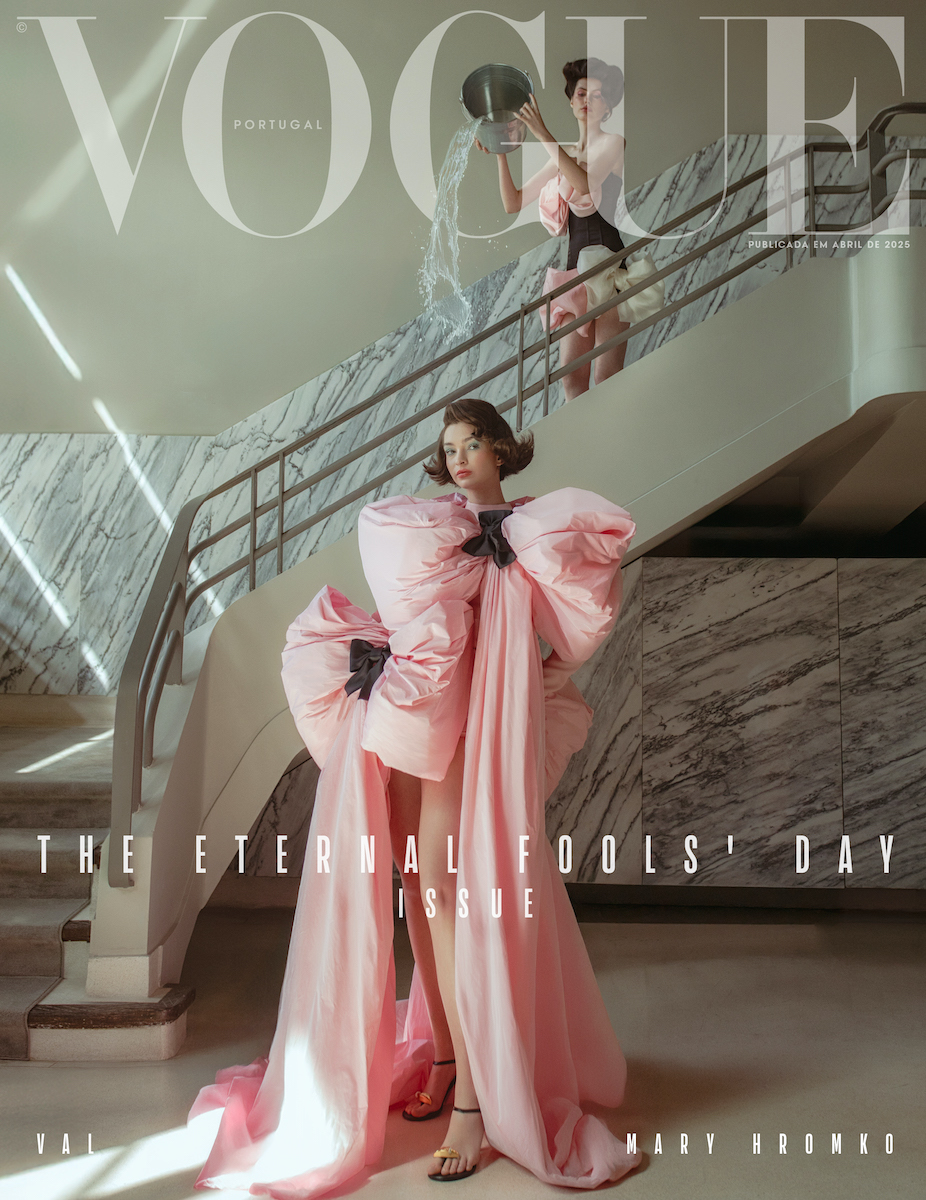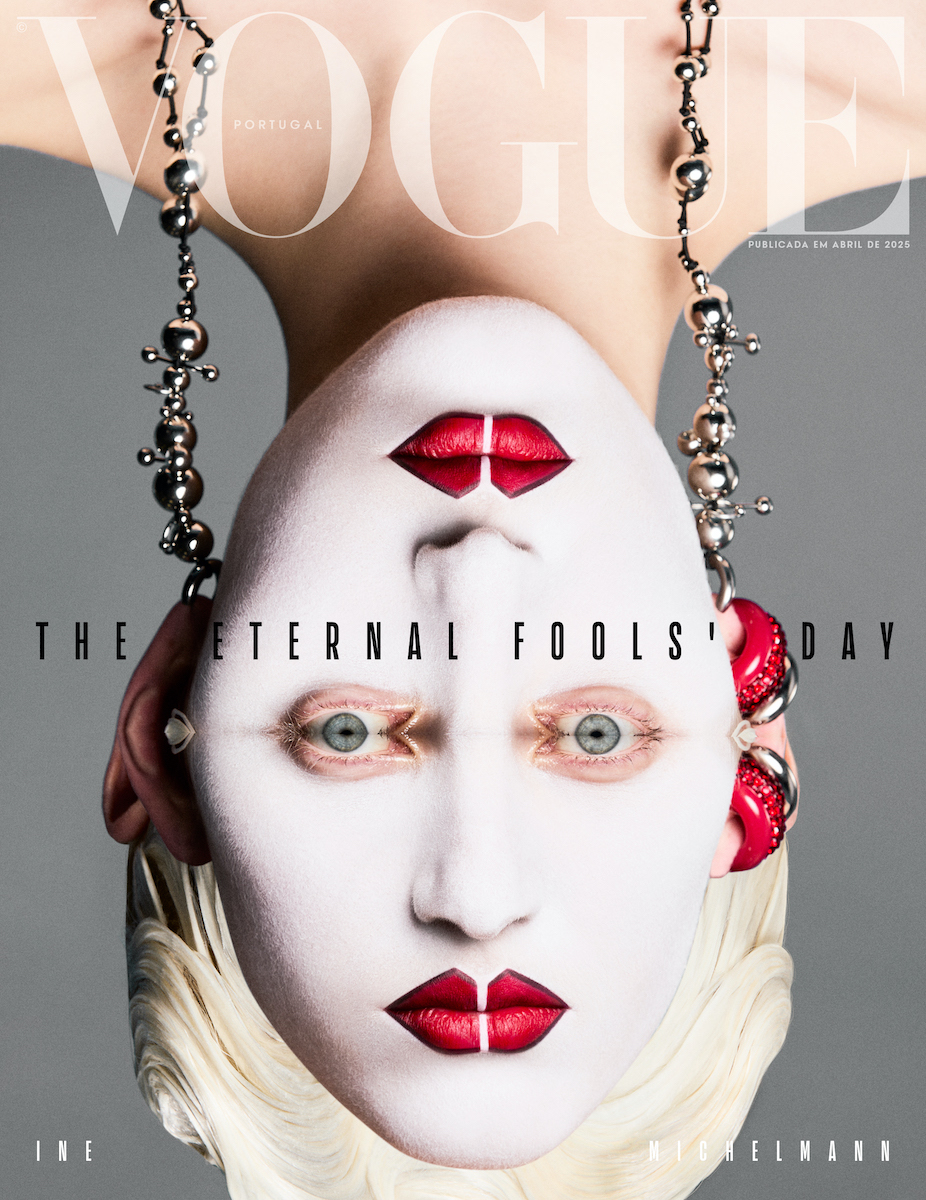© Carlos Teixeira
“A mind that is always comparing, always measuring, will always engender illusion. If I am measuring myself against you… I am denying myself as I am. I am creating an illusion.” - Jiddu Krishnamurti
April Fools' Day deserved, in this issue, a reflection on lies, deception, the art of illusion and all the masks we create, far beyond April 1st - in fact, throughout our entire lives.

Nariah Nicolle for The Eternal Fools' Day issue
Robin Bergiund
We do not know when, or where, the first lie was born, but the ability to deceive, even unconsciously, is as old as nature itself... it arises from the need for survival since life has existed on the planet. The ability to camouflage for some plants and animals that blend into the landscape to protect themselves, or to attack their prey, for example. But conscious lying, I believe, is an attribute as old as humanity. In a primitive world, where humans faced constant threats, lying could be a strategy to avoid danger or secure resources. Over time, lies have evolved from a pragmatic survival tool into a more complex resource. When more organized communities, with more elaborate social norms and rules, emerged, lies began to be used to manipulate, hide mistakes or even shape the perception of others. Thus, lying expanded beyond physical survival to also involve social and emotional issues such as status, power and control. As long as human beings are able to construct narratives about themselves and others, lies will continue to exist. Lying is closely linked to our psychology and our need to control or modify others’ perceptions of us.

Val & Mary Hromko for The Eternal Fools Day issue
Élio Nogueira
The art of illusion is a fascinating form of manipulation of perception, where reality is distorted in such a convincing way that the human mind cannot distinguish the true from the false. In various professions, such as illusionists, writers, actors, visual artists... illusion is used to create experiences that defy the laws of physics, logic and reason. These people are masters at creating an alternate reality, where the impossible becomes possible. They are not only artists, but also philosophers of perception, manipulating human expectations and senses to reveal just how relative our understanding of "truth" really is. On the other hand, there are those whose professional lives are dedicated to the search for truth: journalists, scientists, theologians and philosophers... who dedicate themselves to finding a deeper understanding of reality, unraveling mysteries, exposing lies and discovering evidence that supports or challenges our beliefs. They seek objectivity and clarity, working with data, facts and rigorous analysis to reveal what is “hidden” or “covered up”. However, even in their search for the truth, there is room for personal interpretations, distorted views and even errors, since truth is often a matter of perspective. Interestingly, the line between these two worlds is not as clear as it seems. The search for truth can, in many cases, be an illusion in itself, and the illusion, in turn, can reveal profound aspects of the truth. Truth, like illusion, is a malleable thing. Everyone has the power to shape reality and lead us on paths of self-discovery. Illusion, even though it is an artificial creation, reveals our expectations, our desires and our deepest fears. And the search for truth, although it often seems to be a process of disillusionment, is also, in turn, a kind of illusion—the illusion that we can one day achieve the total purity of knowledge of all truth. At the end of the day, we all lie, and in some way, we are all involved in this game between illusion and truth. The art of illusion and the search for truth are two sides of the same coin, and perhaps the key to understanding the nature of our existence lies precisely in this space between what is real and what is imaginary.

Ine Michelamann for The Eternal Fools' Day issue
Carlos Teixeira
Fools' day (or the day of the innocents) - in Portugal, known as Day of Lies -, is celebrated practically all over the world, on the first of April, a day that, in some way, allows the boundaries between truth and fiction to become more flexible. May April Fools' Day, and this issue, celebrate our ability to entwine reality with threads of fiction, so that, at least for a moment, we can lose ourselves in the sweetness and laughter of pranks and harmless little lies and forget the bitter reality of great deceptions and disappointments.
Translated from the original in The Eternal Fools' Day issue, published April 2025. For full stories and credits, see the print issue.
Most popular

O que lhe reservam os astros para a semana de 27 de janeiro a 2 de fevereiro
27 Jan 2026
.jpg)
Relacionados
.jpg)
Armani, Annie Hall e um guarda-roupa vintage: uma antevisão exclusiva de O Diabo Veste Prada 2
02 Feb 2026

.jpg)




 (17).png)
